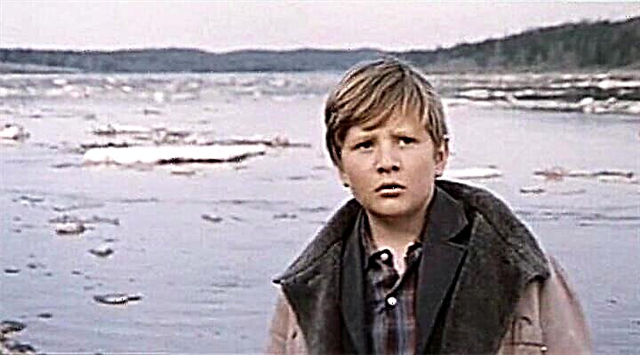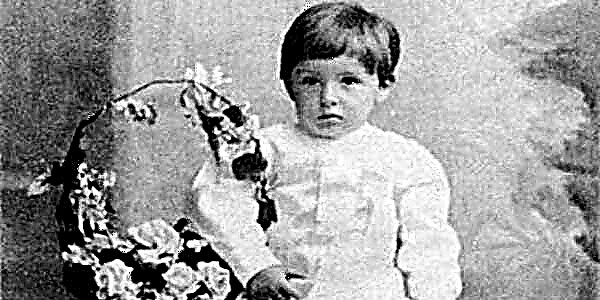Share
Pin
Tweet
Send
Share
Send
On this page we have listed the most common family problems. All of them have a place to be in the content. Under each heading you will find two arguments for an essay on the exam in the Russian language. You can also download a table with all these examples at the end of the article.
The role of the family in the formation of personality
- In the comedy D.I. Fonvizina "Undergrowth" This problem touched one of the main characters of Mitrofanushka - the son of the landowners Prostakovs. The young man is already 16 years old, but he still does not know what he wants from life. This is not to say that the parents did not love the child, on the contrary, they literally choked him with their care and guardianship. Mitrofanushka’s mother, Mrs. Prostakova, especially demonstrated such a zeal for “education”. Maternal love completely blinded a domineering woman. She seemed to see nothing around, except for the exaggerated merits of the undergrowth Mitrofan. She did everything in order to tie him to herself forever. From here came the youth’s lack of independence, laziness and lack of education. The young man had no need to trouble himself, since all the problems for him were solved by an overly attentive mother. Thus, in the play D.I. The Fonvizin family played a huge role in the life of Mitrofanushka: blind parental love did not allow the hero to develop.
- In the story N.V. Gogol "Taras Bulba" the problem of the role of the family in the formation of personality is one of the most important. The family of the old Cossack Taras Bulba had two sons - Andriy and Ostap. The image of the father for the latter became sacred. From childhood, Ostap obediently did everything that his parent taught. He inherited from him such traits of character as perseverance and masculinity. Feelings of patriotism, duty to the family and comrades were also instilled in the Cossack by his father. It is safe to say that thanks to family education, respect for the traditions of his ancestors, Ostap stood with dignity for his homeland, withstood all the torments of execution. However, the excessive pressure and excess energy of Taras negatively affected the education of Andria, who fled from his home and violated all the unwritten rules of his kind. He rebelled against the pressure of the head of the family and wanted to build his life differently. Thus, the same upbringing had a different effect on the fate of Bulba's sons.
The problem of fathers and children
- The main character novel by I.S. Turgenev "Fathers and Sons" Evgeny Bazarov could not find a common language with his parents. Being a supporter of new inculcations and mores, a man of science, not faith, Evgeni Bazarov considers the behavior of parents inappropriate and outdated. He loves his old people, but does not want to live in the past. Also, the liberal views of the hero give rise to a conflict between him and his friend's uncle, Pavel Petrovich Kirsanov. Evgenia is horrified by the fact that Kirsanov is ready to spend money on white-collar workers and an imported suit in a village where no one sees his efforts anyway. According to the young physician, the art beloved by Pavel Petrovich did not go into comparison with science and the natural work of man. An elderly man also does not understand the guest, considering him an ill-bred snob. Only in the finale do they reconcile with the existence of each other, recognizing the fact that the confrontation of generations is a normal phenomenon.
- The reason for the broken fate of the heroes plays by A.N. Ostrovsky "Thunderstorm" again, there is a misunderstanding arising from the difference in age, different views on the world of fathers and children. So, the main character of the work Katerina became an unloved daughter-in-law, because she does not correspond to the ideas of the merchant Kabanikh about a decent person: she does not obey her mother-in-law, allows herself to speak out about something, is deprived of meekness and respect for elders. The confrontation between generations leads to complete chaos in the Kabanovs' house, and ultimately to Katerina’s suicide. Another representative of the "elite" of the city of Kalinov and co-ruler of Kabanikh in the "dark kingdom", the merchant Wild, hates his nephews and the whole family. It is difficult for him to accept that the young generation has the same rights as he does, that Boris himself deserves respect. And young men and women also rebel against outdated practices: Varvara deceives her mother, and in the finale she completely escapes from home, Tikhon blames Kabanova for the death of his wife, etc. Alas, all the characters lacked kindness and understanding, otherwise they could have avoided all these negative consequences.
Education problem
- Father of Peter Grinev - one of the main characters the story of A.S. Pushkin's "Captain's Daughter" - asked the son to learn a simple truth: "take care of honor from a young age." Thanks to his father’s instructions and approximate education, Pyotr Grinev was able to emerge victorious from a difficult game called “Pugachevschina”. The honor and respect of not only friends, but also opponents led Grinev, despite his misconduct, to gain happiness and success in business. Certainly, the contribution of Savelich’s father and “nanny” is a very significant contribution to this victory. Peter did the right thing when he did not reject the advice of the elders, drawing conclusions from them, the hero tried to act according to conscience in everything and with everyone.
- It is one thing when the advice of the parents is in our favor, and quite another when the harmless lesson of the father suddenly turns into the cause of his son’s catastrophes. So in poem N.V. Gogol's "Dead Souls" it speaks of the fate of the once poor youth who became a prosperous and active person. As we know, Chichikov decided to organize an adventure and profit from the mortgaged peasants, who actually do not exist. For the sake of enrichment, he was ready for any deception, so he went to the estates and tried by all means to persuade the owners to sell him dead souls. The reason for such a frenzied craving for money was upbringing: as a child, Pavel received a decree from his father that he never forget the price of money, put material wealth above all else. Such words served as a catalyst for moral decline, and later, oddly enough, the hero’s poor financial situation, because he left with nothing after exposing the Box.
Neglect of children in relation to parents
- Of course, all children love their fathers and mothers, no matter what the circumstances, but not always the realization of this fact comes immediately, that is, at an early age, when we are still able to correct the situation while our parents are alive. In the story of K. G. Paustovsky "Telegram" the young heroine Nastya did not at all wonder how dear her mother was. Nastya did not understand that the bright colors of large Leningrad would not replace her motherly love and affection. Unfortunately, this girl realized too late - only when her mother was near death. The death of the closest person gave rise to a sense of never-ending guilt in Nastya, because the old woman left this world alone, without saying goodbye to her daughter.
- As for the main the hero of the novel I.S. Turgenev "Fathers and Sons" Evgeny Bazarov, he too late admitted his mistakes, already being on his deathbed. He appreciated the care of father and mother, but considered its manifestation optional for himself. By virtue of his character, an educated hero performs rash actions - repels parents who are not baptized enough for scientific conversations with him. Although, as it turned out, the feelings of the young nihilist are much closer than he thought. But he, rejected by his beloved woman, admits this much later, in need of help and affection. He realizes how painful his mother is to see his indifference, how ashamed she is that she is not smart enough to like her son. Alas, this awareness was late, and the hero dies with guilt.
Share
Pin
Tweet
Send
Share
Send

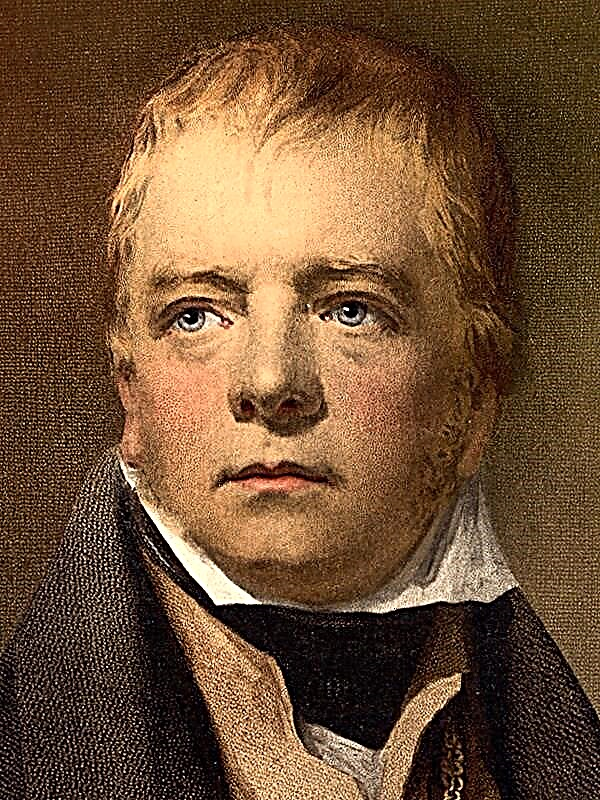

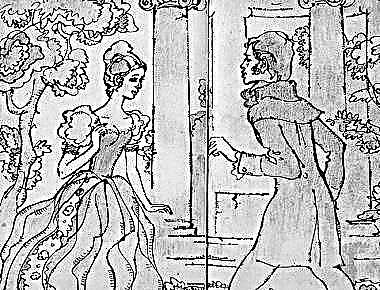

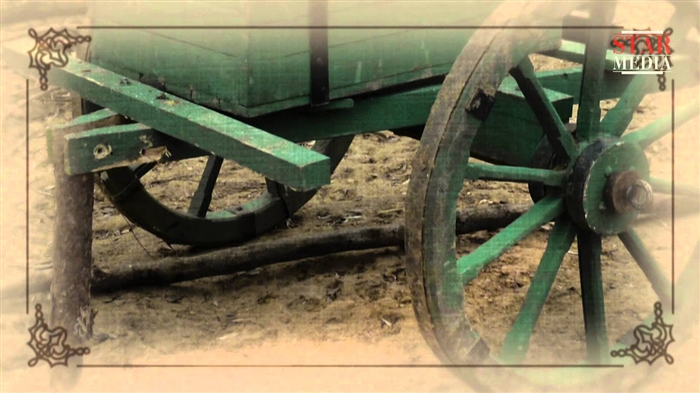 Roslavlev
Roslavlev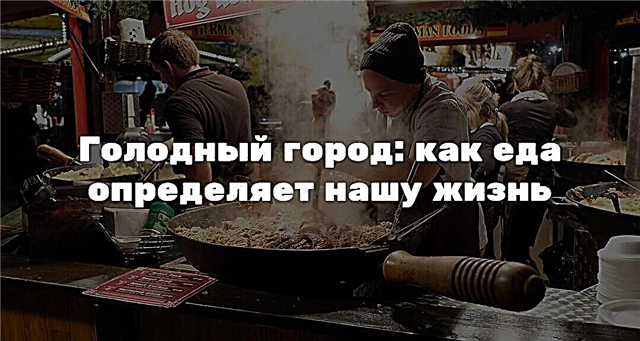 Hungry city
Hungry city

